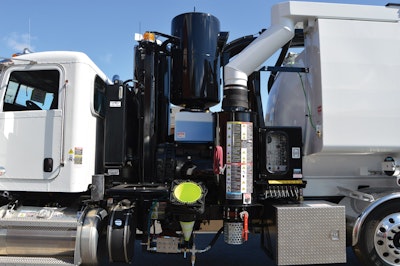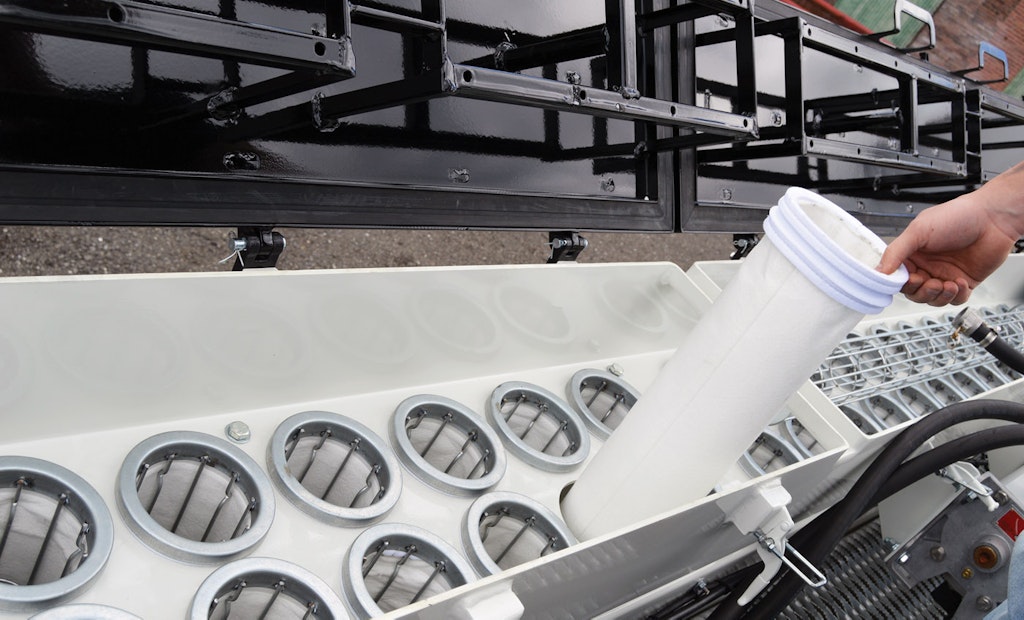When hydroexcavation contractors neglect basic care and maintenance, it can lead to big problems. Two of the biggest things you should be checking regularly are the unit’s pumps and blowers.
“Without a blower or water power, a hydroexcavator is rendered useless,” says Mike Selby, service manager at Vac-Con. “Other than the truck chassis, they are the most expensive components on a hydroexcavator.”
Selby recommends performing a basic daily inspection on both pumps and blowers. The daily check “generally consists of a simple fluid level check, but I would also recommend checking the drive mechanism,” he says, adding that pumps and blowers are similar, so some crossover is a given between the two.
After performing a basic daily check, experts suggest these regular maintenance checks to keep everything in good working condition:
Check filters
Filters are crucial to both pumps and blowers, says Randy Johnson, president of GAP Pollution & Environmental Control in Johnstown, Pennsylvania. The filters prevent dirt and dust, which can damage internal parts, from passing through the blower.
Selby says it is vital to change or clean the inlet strainers or filters to keep foreign material out of the component and extend its life.
Pressure problems
If there’s a problem with the hydroexcavator’s vacuum or pump, you’ll likely notice a pressure change.
“If the blower starts making noise and the contractor is unable to get full vacuum, that’s a sign something is wrong,” Johnson says. “On the water pump, the inability to get full pressure is also a sign something needs to be checked.”
Check for debris
The area around the pump should be kept free of material and debris. Material can collect there due to the dust and dirt blowing around during the job.
“Contractors should check the drive mechanisms for the same thing,” Selby says. “Be sure all piping, boom, debris tank, screens and any other part that the blower vacuums through are free and clear of material for efficient vacuum conveyance to the tank.”
Weather ready
Weather changes should also be taken into account when looking at maintenance of pumps and blowers. “In cold-weather climates, be sure to winter drain the pump to prevent damage from freezing,” Selby says.
If working in a hot area, water pumps need an extra check, he adds. “Most triplex water pumps are air-cooled, and in hot climates, they can overheat if cool air can’t reach them.”
Don’t overdo it
Operators can get into trouble if they put too much pressure on their pumps and blowers.
“My biggest advice to anyone is to run your equipment at a speed that is just enough to complete the work you are doing,” Johnson says. “When you run the truck too high, you can cause problems such as overloading the filters and damaging your blower, passing water that can wear out pump parts and waste fuel.”
Selby agrees, adding that you should avoid running the pump dry for any extended amount of time. “There is no reason to run a pump dry for longer than 30 seconds since it only increases pump packing wear.”
Blower joints and vacuum relief valves
Poorly sealed joints lead to low vacuum pressure for blowers, Johnson says. “Joints such as boom extension, rear body door, inlet and outlet seals can cause air to leak into the system, causing poor lifting at the end of the boom.”
Vacuum relief valves protect the blower from overheating. When blowers run at high, they generate heat and the internal rotating components expand. If the vacuum exceeds the rated amount, the relief should open, allowing cool air into the blower and limiting the internal component expansion. If the vacuum relief fails, the blower can seize, causing major damage.
Plan ahead
While you may be good about doing maintenance checks before or after a truck leaves the shop, Selby says it is important to think ahead.
“Prior to working on a job site for an extended period of time, make sure you can obtain necessary replacement parts and consumables,” he says. “All too often, contractors are working in areas unfamiliar to them. Due diligence in finding the closest parts and service supplier prior to the job can mean the difference in profit and loss when the machine does have a problem.”







